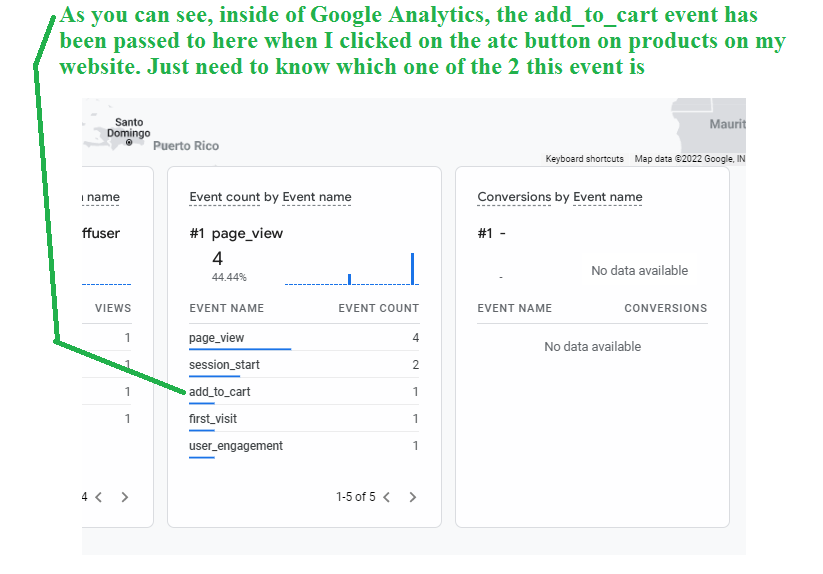Maximizing Your Campaigns with Remarketing In Google Analytics
Maximizing Your Campaigns with Remarketing In Google Analytics
Blog Article
Optimize Your ROI With Remarketing in Google Analytics
By using the power of user information and customizing advertisements to details audience segments, businesses can considerably intensify their conversion rates. The trip to making best use of ROI through remarketing is a nuanced course paved with understandings and opportunities that can improve the trajectory of your advertising undertakings.
Recognizing Remarketing in Google Analytics
Comprehending remarketing in Google Analytics is necessary for enhancing your digital advertising and marketing method. Remarketing allows you to target customers that have actually formerly visited your website or engaged with your app, providing them with tailored ads as they surf various other sites or utilize other apps within the Google Display Network. This approach assists maintain your brand top of mind and encourages customers to return to your website, inevitably raising the likelihood of conversion.
By utilizing Google Analytics, you can track the performance of your remarketing campaigns, obtaining beneficial insights right into customer actions, engagement, and conversions. This information enables you to refine your targeting, messaging, and bidding approaches to boost the general effectiveness of your campaigns.
Moreover, comprehending the different sorts of remarketing lists available in Google Analytics, such as conventional, dynamic, and similar audiences, permits you to develop very segmented and individualized projects customized to specific customer sectors. This level of granularity can substantially enhance the significance and impact of your remarketing efforts, ultimately optimizing your roi.
Setting Up Remarketing Checklists
To successfully carry out remarketing projects in Google Analytics, the first action entails setting up and creating remarketing listings targeting details user sections based upon their interactions with your site or app. By establishing up remarketing lists, you can customize your marketing initiatives to reach customers that have already shown rate of interest in your product and services.
To start, browse to the Admin section of your Google Analytics account and pick the Building where you wish to produce the remarketing listing. Under the Building column, click on 'Audience Definitions' and pick 'Audiences.' Next off, click on the red 'New Target market' switch and select 'Create New' to define the criteria for your remarketing checklist.
Crafting Effective Remarketing Ads

When crafting your advertisements, focus on developing attention-grabbing headings and compelling visuals that stick out to prospective consumers. Incorporate solid calls-to-action that encourage customers to revisit your website and finish a wanted action. Utilize vibrant remarketing to show personalized ads featuring items or solutions that users have formerly checked out on your site.
In addition, make certain that your ads are mobile-friendly since a substantial part of internet website traffic comes from smart phones. Examination various ad variants to recognize which messages and layouts drive the best results. By continuously refining and maximizing your remarketing ads based on performance data, you can maximize their effectiveness and boost your roi.
Analyzing Remarketing Efficiency

Through Google Analytics, online marketers can track the efficiency of their remarketing campaigns in real-time, permitting them to identify patterns, patterns, and locations for enhancement without delay. By analyzing the information, marketers can identify which ads are carrying out well, which audience sections are responding positively, and which networks are driving one of the most conversions. This level of granularity makes it possible for marketing professionals to additional resources make data-driven choices to enhance their remarketing advocate far better outcomes.
Maximizing ROI With Remarketing
Examining remarketing information in Google Analytics enables marketers to determine possibilities for maximizing roi (ROI) via critical changes - What Is “Remarketing” In Google Analytics?. To take imp source full advantage of ROI with remarketing, it is important to understand the behavior of your target market. By examining customer communications, such as the web pages they visited, the items they checked out, or the actions they handled your site, you can tailor your remarketing campaigns better
Segmenting your target market based on their habits permits you to develop tailored and targeted advertisements that are more probable to reverberate with them. By revealing appropriate ads to certain sectors of your audience, you can raise the possibilities of conversion and inevitably boost your ROI.
Moreover, testing various advertisement creatives, messaging, and deals can help determine what resonates finest with your audience. A/B screening permits you to experiment with different aspects of your ads to establish what drives the greatest engagement and conversion prices.
Conclusion
To conclude, making the most of ROI with remarketing in Google Analytics calls for a calculated strategy to evaluating customer behavior, segmenting target markets, creating tailored ads, and maximizing campaign efficiency. By leveraging data-driven understandings and evaluating various techniques, organizations can improve their remarketing efforts to drive greater engagement and conversion prices. This organized strategy guarantees that resources are effectively alloted towards optimizing returns on investment in remarketing campaigns.
Next, click on the red 'New Target market' button and choose 'Develop New' to specify the specifications for your remarketing checklist.
By continuously refining and optimizing your remarketing advertisements based on performance data, you can optimize their effectiveness and boost your return on investment.
By delving into these insights, marketing experts can gain a detailed understanding of just how their remarketing initiatives are resonating with their target audience and driving conversions. To make the most of ROI with remarketing, it is vital to comprehend the actions of your target market.In final thought, making best use of ROI with remarketing in Google Analytics calls for a critical method to evaluating individual actions, segmenting target markets, creating tailored advertisements, and maximizing project efficiency.
Report this page